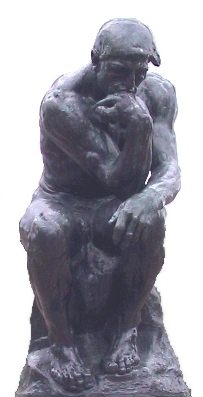Thinking Beyond Stage One

Thomas Sowell has been called "America's leading intellectual" and with the passing of Milton Friedman, is considered by many to be the nation's top economist. To those of us who view both intellectuals and economists with a skeptical eye, Dr. Sowell is a reminder that worthy individuals remain in each group.
In the preface of his revised edition of Applied Economics, Dr. Sowell offers advice on thinking through public policy decisions that can equally apply to management, marketing, compensation systems, and more. Dr. Sowell writes...
One Stage Thinking
When I was an undergraduate studying economics under Professor Arthur Smithies of Harvard, he asked me in class one day what policy I favored on a particular issue of the times. Since I had strong feelings on that issue, I proceeded to answer him with enthusiasm, explaining what beneficial consequences I expected from the policy I advocated.
"And then what will happen?" he asked.
The question caught me off guard. However, as I thought about it, it became clear that the situation I described would lead to other economic consequences, which I then began to consider and to spell out.
"And then what will happen after that?" Professor Smithies asked.
As I analyzed how the further economic reactions to the policy would unfold, I began to realize that these reactions would lead to consequences much less desireable than those at the first stage, and I began to waiver somewhat.
And then what will happen?" Smithies persisted.
By now I was beginning to see that the economic reverberations of the policy I advocated were likely to be pretty disasterous-- and, in fact, much worse than the initial situation that it was designed to improve.
Simple as this little exercise might seem, it went further than most economic discussions about policies on a wide range of issues. Most thinking stops at stage one.
While Dr. Sowell is speaking to public policy, his advice applies to most management decisions. In fact, it applies to most life decisions. Much decision making is reactive. We're presented with a problem and formulate an action in response. However, the response results in other consequences, some of which may be undesireable.
Dr. Sowell advocates thinking through the immediate consequences (stage one), and then thinking through the consequences to the consequences (stage two) and their consequences (stage three). As you face a management decision, keep asking yourself, "And then what happens?"
Most service company owners came up through the field. Earlier in their careers they worked with their hands, solving technical problems. In field service, one learns the pitfalls of stage one thinking the first time a symptom is corrected while the underlying problems remains unaddressed. The result of this type of stage one thinking is a callback, with all of the stress, irritation, expense, and embarrassment that accompany it. It doesn't take many callbacks before one slows down and starts thinking problems through.
Management and marketing problems are no different than technical problems with regard to the need to think beyond stage one. The consequences, of course, may be far greater.
When you're faced with a decision, stop and ask yourself, "And then what will happen?"

No comments:
Post a Comment